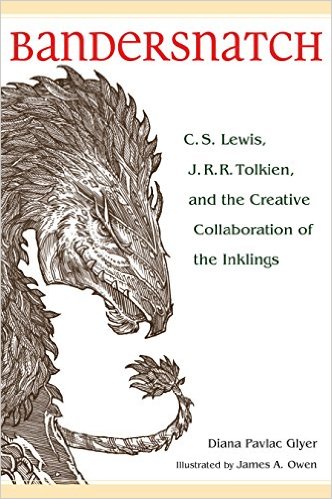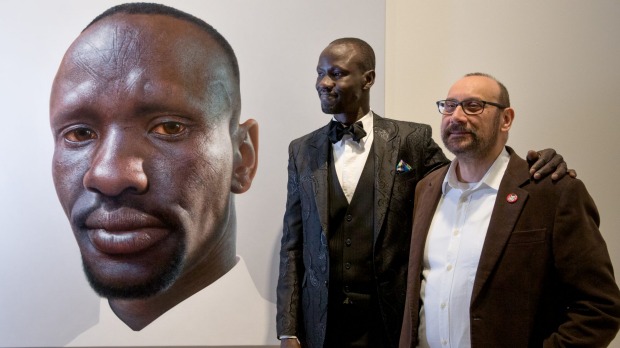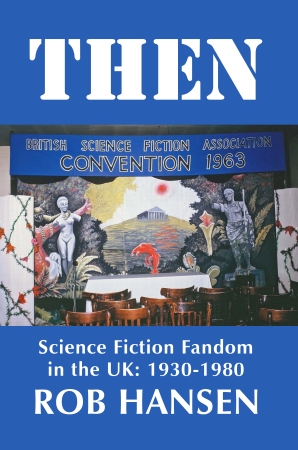(1) BEST SERIES HUGO FLAW? Sami Sundell is dissatisfied with the 2017 Hugo test category, judging by his title: “Best Series is a popularity contest”.
Last year, Eric Flint wrote about the discrepancy between popularity in bookstores and winning (Hugo) awards. I then pointed out, that the big time bookstore magnets tend to write series. So, on the face of it, adding a new category could bring the awards closer to general populace…..
Re-eligibility of a nominee
The actual series proposal suggests a non-winning nominee for Best Series could become re-eligible after at least two additional tomes and 240 000 words. If the series is long enough and the writer prolific enough, you might see the same series popping up every few years, adding at least quarter of a million words to the reading effort every time.
You see, that’s another thing about the popular series: they hook their readers. Even if the quality wanes, it’s hard to let go of a series you’ve started – and some of those series have gone on for 40 years.
There’s nothing wrong with the same author and series being nominated multiple times; that happens regularly with other categories. In this case, however, it’s not just the latest installation that should be considered. It’s the whole body of work, which may span multiple authors, media, and decades.
More than any other written fiction category, Best Series has makings of a popularity contest in it: people will vote for whatever they are familiar with and attached to. That’s fine for selecting what to read next, but it shouldn’t be grounds for a Hugo.
(2) AUDIBLE INKLINGS. Oxford fellow Michael Ward (Planet Narnia) narrates Diana Pavlac Glyer’s Bandersnatch: C.S. Lewis, J.R.R. Tolkien and the Creative Collaboration of the Inklings in the Audible Audio Edition, released September 26.
(3) MYTH BUSTED OR INTACT? Aaron Pound looks at the “2007 Hugo Longlist” and commences to bust what he feels is a Hugo voting “myth.”
Whenever a Worldcon is held outside of the United States, people suggest that genre fiction works produced by local authors and editors are going to receive a boost in the Hugo nomination process and subsequent voting. Nippon 2007, the Worldcon held in 2007, was located in Yokohama, and given that Japan has an active science fiction and fantasy scene, one would think that the ballot would have been filled with Japanese books, stories, movies, and television shows. At the very least, one would think the Hugo longlist would be filled with such works. With the exception of Yoshitaka Amano’s appearance on the Best Professional Artist category, the 2007 Hugo longlist appears to be entirely devoid of any influence from Japanese voters.
Based upon the evidence of the statistics from 2007, it seems that the “bump” for local writers and artists is negligible at best….
This question really requires a more nuanced investigation of ALL Worldcons held outside North America, not just the one in Japan (inexplicable as the result was).
Looking at the final ballots from UK and Australian Worldcons, you can see a number of nominees (especially in the fan categories) who don’t get that support when the con is in North America.
However, the membership of most Worldcons is predominantly US fans, which gives things a certain consistency, wanted or not.
(4) KNOW YOUR GENRE. Sarah A. Hoyt explains the traits of a long list of genres and subgenres in a breezy column for Mad Genius Club.
If I had a dime for every time someone approaches me and says “My erotica/romance/science fiction/fantasy isn’t selling and I can’t tell why.” And/or “I keep getting these really weird comments, like they’re angry at me for not being what I say it is.” I’d be buying a castle somewhere in England, as we speak.
And almost everytime I look into the matter, my answer is something like “But that’s not an erotica/romance/science fiction/fantasy.”
I will say right here that most of the time the problem is that people don’t read the genres they’re identifying their books as. They just heard of them, and think that must be what they are. This also explains all the people who assure me I write romance (rolls eyes) and that’s why they won’t read Darkship Thieves, or Witchfinder, or…
Because there is a romance in the book, somewhere, and they think that’s what the romance genre is.
It’s time to get this figured out, okay?…
(5) LUKE CAGE’S SHORTCOMINGS. Abigail Nussbaum finds a new Marvel superhero series wanting — “Tales of the City: Thoughts on Luke Cage” .
“For black lives to matter, black history has to matter.” A character says this shortly into the first episode of Luke Cage, Netflix’s third MCU series, and the fourth season of television it has produced in collaboration with Marvel as it ramps up for its Defenders mega- event. It’s easy to read this line as a thesis statement on the nature of the show we’re about to watch, but it’s not until some way into Luke Cage‘s first season that we realize the full import of what creator Cheo Hodari Coker is saying with it, and how challenging its implications will end up being. As has been widely reported and discussed, Luke Cage is the first black MCU headliner–not just on TV or on Netflix, but at all. And, unlike the forthcoming Black Panther, whose story is set in a fictional African superpower, Luke Cage is explicitly a story about African-Americans in the more-or-less real world, at a moment when the problems and indignities suffered by that community are at the forefront of public discussion. It is, therefore, a show that comes loaded with tremendous expectations, not just of introducing a compelling character and telling a good superhero story, but of addressing increasingly fraught issues of race, in both the real world and the superhero genre. It’s perhaps unsurprising that Luke Cage falls short of these expectations, but what is surprising is how often it doesn’t even seem to be trying to reach them. Or, perhaps, not surprising at all–as the first episode spells out, Luke Cage is less interested in black lives than it is in black stories.
(6) FINAL INSTALLMENT. Renay from Lady Business has produced her last column for Strange Horizons:
When I started this column back in 2013, I didn’t know a lot of things. I didn’t know a lot about the depth and breadth of the science fiction and fantasy community. I didn’t know what it felt like to have a wider audience. I didn’t know yet how many people would be kind to me and also didn’t know (thankfully, because I might have run the other way) that people would be cruel. I hadn’t done any of the things that would change my perspective as a fan: write a fan column, be paid for writing, be included in a fan anthology, edit a fan anthology, become a Barnes & Noble reviewer, start a podcast with another big name fan, be a Hugo nominee, or go to Worldcon. But I’ve done all those things now and here’s what I’ve learned….
(7) CHARACTER (ACTING) COUNTS. Edward L. Green’s website for his acting career is now online.
(8) SUPPORTING HOMER HICKAM. San Diego fan Gerry Williams is encouraging a boycott of the musical October Sky at the Old Globe Theaters in his hometown. He explains:
ROCKET BOYS author Homer Hickam is in a very serious dispute and lawsuit with the corporate establishment at Universal Studios and with The Old Globe Theaters. He has tried to have his name removed from the Old Globe’s production (to no avail) for their Rocket Boy’s version of his story. You can read about all the problems on his blog here: http://homerhickamblog.blogspot.com/2016/09/my-struggle.html Personally I’m urging our local Southern California space community to stand with Homer Hickam and BOYCOTT The Old Globe’s production.
Hickam’s many frustrations about the rights struggle include the effect it’s having on the musical adaptation he himself has written — Rocket Boys, the Musical.
Meantime, if you’re curious about the version being produced at the Old Globe —
Book by Brian Hill and Aaron Thielen Music and Lyrics by Michael Mahler Directed by Rachel Rockwell Inspired by the Universal Pictures film and Rocket Boys by Homer H. Hickam, Jr.
“A sumptuous production of an old-fashioned crowd-pleaser. October Sky feels good all over!” —Talkin’ Broadway
The beloved film is now a triumphant new American musical that will send your heart soaring and inspire your whole family to reach for the stars! In the small town of Coalwood, West Virginia, every young man’s future is in the coal mines, but after the launch of Sputnik in 1957, the world’s race to space inspires local highschooler Homer Hickam to dream of a different life. Against the wishes of his practical-minded father, he sets out on an unlikely quest to build his own rockets and light up the night sky. October Sky is an uplifting musical portrait of small-town Americana packed with youthful exuberance, and a sweeping, unforgettable new score.
(9) TODAY IN HISTORY
October 5, 1969 — Monty Python’s Flying Circus first appeared on the British Broadcasting Corporation’s BBC-1
(10) TERRY JONES RECEIVES BAFTA CYMRU AWARD. The Guardian has video of this touching acceptance:
Monty Python star Terry Jones collects his award for outstanding contribution to television and film at the Bafta Cymru awards on Sunday. Jones announced last month he has a severe type of dementia which affects his speech. He was accompanied on stage by his son Bill who told the audience it was a “great honour”
(11) TODAY’S BIRTHDAY BOYS
- Born October 5 – Paul Weimer
- Born October 5, 1958 — Neil DeGrasse Tyson
(12) WAYWARD FACULTY ADDITIONS. Who they are and what they’ll teach – the new faculty joining Cat Rambo’s Academy.
Now the Rambo Academy for Wayward Writers (classes.catrambo.com) adds three new teachers to its roster: Ann Leckie, Rachel Swirsky, and Juliette Wade. Each presents both a live version of the class, limited to eight students and taught via Google Hangouts, as well as an on-demand version.
Swirsky’s class, Old Stories Into New (http://catrambo.teachable.com/p/old-stories-into-new/), discusses existing forms and how genre writers draw on the stories that have preceded them–particularly folklore, mythology, and fables, but also beloved literature and media. The class presents the best methods for approaching such material while warning students of the possible pitfalls. Readings, written lectures, and writing exercises from Hugo and Nebula award winning writer Rachel Swirsky teach the student how to keep work original and interesting when playing with familiar stories. A live version will be offered on October 29, 2016; the on-demand version is available here.
Wade’s class, The Power of Words (http://catrambo.teachable.com/courses/the-power-of-words-linguistics-for-speculative-fiction-writers), focuses on the study of linguistics and its relevance to genre writing. Wade shows how linguistics differs from the study of foreign languages, and gives a survey of eight different subfields of linguistics. The class examines principles of language at levels of complexity from the most basic articulation of speech sounds to the way that language is used to participate in public forms of discourse. Wade looks at how each subfield can be used to enhance a writer’s portrayal of characters and societies in a fictional world. Then she takes the discussion to the level of text to consider how principles of linguistics can hone point of view and narrative language in storytelling. A live version will be offered on December 17, 2016.
Leckie’s class, To Space Opera and Beyond, will centers on space opera: its roots as well as its current manifestations as well as how to write it. Topics covered include creating and tracking multiple worlds, characters, and plots, interlocking and interweaving plots, writing storylines stretching across multiple books, and developing engaging and distinct politics, languages, and other cultural institutions. Both live sessions of the class are sold out. The on-demand version will be available in November.
Live classes are co-taught with Cat Rambo; registration details can be found at: http://www.kittywumpus.net/blog/upcoming-online-classes/.
(13) THIS WASN’T A TEST WHERE I WANTED TO SCORE WELL. “10 Habits of extremely boring people”. Send help — it’s alarming how many of these I checked off…
(14) BUCKAROO BANZAI CAN’T GET ACROSS THE AMAZON. Joseph T. Major in concerned. He looked at this article and said, “It looks like the World Crime League is making a score.” — “Rights Issues Stymie BUCKAROO BANZAI Amazon Series”.
Buckaroo Banzai may be in trouble and this time it is not from the machinations of evil Lectroids from Planet Ten or the World Crime League, but from something far more vexing – rights issues.
In an interview, W. D. Richter, director of the 1984 cult classic The Adventures Of Buckaroo Banzai: Across The Eight Dimension, revealed that it is possible that the rights to the actual character of Buckaroo Banzai actually lie with screen writer Earl Mac Rauch. And that could impact the television version of the film that writer/director Kevin Smith is currently developing with MGM for Amazon Studios.
(15) WHERE DID YOU GET MY NUMBER? I don’t make a lot of phone calls, but when I do the person on the other end seems more surprised to be getting a call than that it’s from me, and that may be part of trend – Slate explains: “The Death of the Telephone Call, 1876-2007”.
The phone call died, according to Nielsen, in the autumn of 2007. During the final three months of that year the average monthly number of texts sent on mobile phones (218) exceeded, for the first time in recorded history, the average monthly number of phone calls (213). A frontier had been crossed. The primary purpose of most people’s primary telephones was no longer to engage in audible speech….
Calling somebody on the phone used to be a perfectly ordinary thing to do. You called people you knew well, not so well, or not at all, and never gave it a second thought. But after the Great Texting Shift of 2007, a phone call became a claim of intimacy. Today if I want to phone someone just to chat, I first have to consider whether the call will be viewed as intrusive. My method is to ask myself, “Have I ever seen this person in the nude?” The sighting doesn’t have to be (indeed, seldom is) recent. Nor is it necessary that I remember it. I need only deduce that, sometime or other, I must have seen this person naked. That clears phone calls to a wife or girlfriend, to children, to parents, to siblings, to old flames, to former roommates from college, and very few others.
(16) TREKKIE STONELORE. UPI tells us “Redditor Haoleopteryx posted a photo of the business cards he had specially printed to deal with constant jokes about the name of the profession.”
I’m a volcanologist and I really don’t know how it took me so long to actually get around to making these
[Thanks to Cat Rambo, JJ, and John King Tarpinian for some of these stories. Title credit goes to File 770 contributing editors of the day — Heather Rose Jones because I noticed her post it, and Kip W. because he actually suggested it first eight hours earlier. The bar is open — everybody appertain your favorite beverage!]




